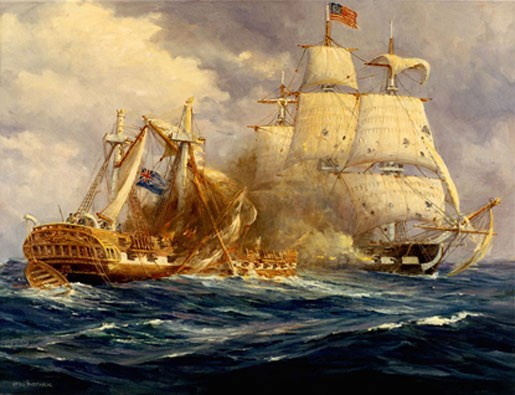
Navy History Center
For many Americans, the War of 1812 was a forgotten conflict. Its significance is often boiled down to the familiar American icons it gave birth to, such as "Old Ironsides" and "The Star-Spangled Banner." But the reality behind this often glorified history is more complicated.
In many ways, the War of 1812 was the second chapter of the American Revolution. It was fought once again between the United States and Great Britain, and sought -- once and for all -- to establish both political and economic sovereignty of the U.S. But this conflict was not between two nations, it was a war of many nations, all of whom had strong interests in the land that we call America. This conflict embroiled the United States, Great Britain, her colony Canada, Spain, and dozens of Native nations as well.
The treaties that ended the conflict between the United States, Great Britain, and Native allies brought a sense of victory to the Americans and Canadians at the same time. Canadians declared victory, pointing to the dramatic failure of the U.S. to invade their homeland, celebrating the strength and ingenuity of Canada. The U.S. also declared victory, having successfully negotiated an end to its first war as a sovereign nation, made humble the "conqueror of Europe," and acquired millions of acres of Indian territory to expand its borders. But this "second war of independence" left many Americans -- especially Native Americans and African Americans -- with yet another promise for freedom unfulfilled. Indeed, the United States accomplished few of the objectives it declared war to achieve.
Was the War of 1812 a success or a failure? Perhaps it was neither. Although the conflict helped to shape American identity, the war served not as an end, but as a harbinger for much more change to come. Westward expansion and Indian Removal, together with the institution of slavery and a bigger, bloodier Civil War, would continue to test America's democratic experiment. Sandwiched between the American Revolution and the revolutionary transformation surrounding the Civil War, the War of 1812 was left as a distant memory.
Last updated: August 16, 2013
